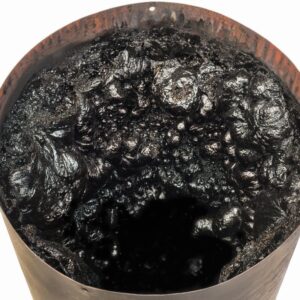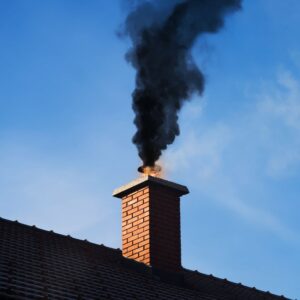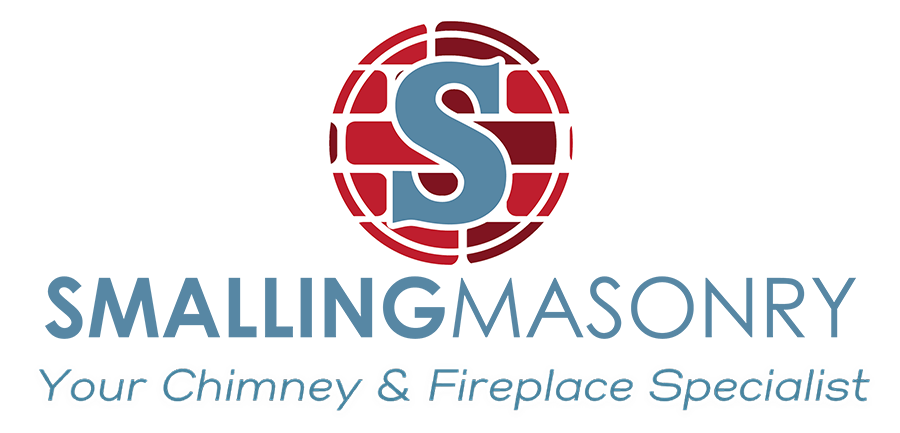If your home has a fireplace, then it should have some type of venting or chimney system that’s designed to keep you and your family safer while enjoying cozy fires throughout the winter.
But did you know that wood stoves and fireplaces can experience chimney fires?
And they aren’t always as blatantly obvious as they may seem when you see them in commercials or pictures. Lucky for you and the residents of Passaic County, Garden State Chimney is here to help with all your chimney needs – including helping you know how to avoid a chimney fire.
What Causes Chimney Fires?
 Chimney fires can be caused by a variety of factors, but typically they are due to either a build up of creosote or a blocked up flue – or a combination of the two things.
Chimney fires can be caused by a variety of factors, but typically they are due to either a build up of creosote or a blocked up flue – or a combination of the two things.
What is creosote?
Creosote is a byproduct that is produced when you burn wood in your fireplace or stove. It’s highly combustible, which is why it is extremely important to have your chimney system inspected and swept at least once a year. This helps to remove that build up and lower your risk for a creosote-related chimney fire.
Blockages in the flue are also dangerous because they restrict airflow, which can increase the temperature in the system. This leads to ignition of built-up creosote or any other flammable materials (like birds nest) that are present.
Don’t assume you’re not at risk! There are thousands chimney fires a year, and it isn’t always obvious one has occurred. This is, again, why it is very important to get your system inspected and swept by a certified technician each year.
How Can I Prevent Chimney Fires?
The best way to prevent a chimney fire is to have the certified chimney technicians here at Smalling Masonry come out to inspect and sweep your chimney system at least once a year.
We say once a year, but if you use your system a lot, have recently changed fuel sources, or suspect damage, then it is a good idea to have it done more often. Our team will carefully sweep (clean) your system, and then inspect its components to make sure there are no signs of issues or potential problems.
Proactive maintenance is the best way to ensure your chimney system is working properly and efficiently – and to keep you and your family safer.
Other ways to prevent chimney fires include:
- Only burn dry seasoned wood, as damp or wet will increase creosote build up.
- Keep an eye out for smoke entering the home or poor airflow. If you see smoke flowing back in your home something isn’t right.
- Burn hotter, quicker fires, as opposed to slow-burning ones, which allow smoke to linger (and thus encourage creosote buildup).
The other important thing to remember about chimney fires is that they can spread to the rest of your home should things escalate. Don’t risk this threat – and some expensive home damage. Call us in now or book online today to get an appointment set up.
Signs You May Have Experienced a Chimney Fire
We always hope that our customers never have to experience one of these unfortunate fires. That said, we also believe in educating them on what to expect if they do experience one. Like we said, most chimney fires are quiet and slow-moving, so you won’t notice it happening. Knowing what to watch for after the fact is a must.
 Some signs to be on the lookout for are:
Some signs to be on the lookout for are:
- Honeycombed creosote in your flue
- Discolored (bruise-like color) or distorted chimney cap
- Distorted or discolored damper
- Roof damage or globs of tar residue
- Visible cracks in the masonry
- Damaged or cracked flue tiles
- Scorched areas in flue
What Happens After a Chimney Fire?
If you have experienced a chimney fire – or suspect you have – whatever you do, do not use your chimney!
Rather, call us right away. It’s important to have an inspection done when you suspect a chimney fire has occurred – and not just a visual one, but one that uses advanced internal video equipment. This will allow us a good and thorough look at it all.
The extent of damage will determine the next course of action. If you have had a large chimney fire, you could be looking at a full or partial rebuild. No matter the situation, though, our team of certified technicians can help determine the best chimney repairs and steps forward to get you back in action in no time.
Reach Out With Questions or Scheduling Needs
When it comes to your family’s safety, you can trust that our friendly, certified professionals will always put you first. We pride ourselves on providing quality service on every job from start to finish.
Whether you still have questions, or if you’re ready to have us inspect your chimney system, give us a call at 317-903-8121 or reach out online. The team at Smalling Masonry is here for you!
